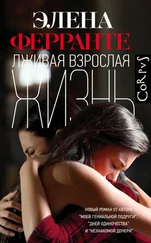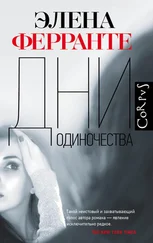“I’m fond of it, I’ve had it for years.”
“Well, watch out, it’s so pretty some thug’ll pass by and grab it off you.”
Then she let go of her hand as if a sudden impulse of disgust had replaced the praise and returned to Angela and Ida. She said in a false tone that they were much more precious than all the bracelets in the world, and she got in the car while Costanza ordered: girls, be good, don’t make me worry, I’ll be waiting for you here at two, and, since my aunt didn’t answer, and in fact had got in the driver’s seat without saying goodbye, and with one of her most glowering looks, I shouted with feigned cheer from the window, yes, Costanza, at two, don’t worry.
4.
We drove off, and Vittoria, with her usual inexpert yet reckless driving, took us on the ring road and then all the way down to Pascone. She wasn’t kind to my friends; during the journey she kept reprimanding them because their voices were too loud. I yelled, too, the engine made a racket and it was natural to raise your voice, but she took it out only on them. We tried to control ourselves, she got angry just the same, she said that her head hurt, she ordered us not to even breathe. I guessed that something had irked her, maybe she didn’t like the two girls, it was hard to say. We went much of the way without saying a word, I beside her, Angela and Ida on the very uncomfortable back seat. Until, out of the blue, my aunt herself broke the silence, but a hoarse, mean voice came out, as she asked my friends:
“You’re not baptized, either?”
“No,” Ida said readily.
“But,” Angela added, “Papa said if we want to we can be baptized when we grow up.”
“What if you die in the meantime? You know you’ll go to limbo?”
“Limbo doesn’t exist,” said Ida.
“Nor Paradise, purgatory, or hell,” Angela added.
“Who told you that?”
“Papa.”
“And where does he think God puts those who sin and those who don’t sin?”
“God doesn’t exist, either,” said Ida.
“And sin doesn’t exist,” Angela explained.
“That’s what Papa told you?”
“Yes.”
“Papa is a shit.”
“You shouldn’t say bad words,” Ida admonished her.
I intervened so that Vittoria wouldn’t lose patience for good.
“Sin exists: it’s when there’s no friendship, there’s no love, and you waste something good.”
“You see?” said Vittoria. “Giannina understands and you don’t.”
“It’s not true, I understand, too,” Ida said nervously. “Sin is a bitterness. We say ‘What a sin’ when something we like falls on the floor and breaks.”
She waited to be praised, but the praise didn’t arrive, my aunt said only: a bitterness, eh? I thought it was unfair to behave like that with my friend, she was younger but very smart, she devoured difficult books, and I liked the observation. So I repeated “What a sin” once or twice, I wanted Vittoria to hear it clearly, what a sin, what a sin. My anguish increased, but without a precise cause. Maybe I was thinking of how everything had turned brittle, right before that terrible remark of my father’s about my face, when I’d gotten my period, when my chest had swelled, who knows. What to do. I’d given too much importance to the words that wounded me, too much weight to this aunt, oh to be a little child again, six, seven, maybe eight, or even younger, and erase all the steps that had led me to the ankles of Mariano and my mother, to being shut up now in this ramshackle car, constantly at risk of hitting other cars, of going off the road, so that maybe in a few minutes I’d be dead, or gravely injured, and would lose an arm, a leg, or be blind for the rest of my life.
“Where are we going?” I asked, and I knew it was an infraction, in the past I had ventured only once to ask a question like that and Vittoria had replied irritably: where I want to go. In this situation, though, she seemed to respond willingly. She didn’t look at me, she looked at Angela and Ida in the rearview mirror and said:
“To church.”
“We don’t know any prayers,” I warned her.
“That’s bad, you have to learn them, they’re useful.”
“But for now we don’t know them.”
“Now it doesn’t matter. Now we’re not going to say prayers, we’re going to the parish flea market. If you don’t know how to pray, surely you know how to help sell.”
“Yes,” Ida exclaimed happily, “I’m good at it.”
I felt relieved.
“Did you organize it?” I asked Vittoria.
“The whole parish but mainly my children.”
For the first time in my presence, she defined as hers Margherita’s three children, and she did it with pride.
“Corrado, too?” I asked.
“Corrado is a piece of shit, but he does what I say, otherwise I’ll break his legs.”
“And Tonino?”
“Tonino is good.”
Angela couldn’t contain herself and let out a shout of enthusiasm.
5.
I had rarely entered a church and only when my father wanted to show me one that in his opinion was particularly beautiful. According to him the churches of Naples were elegant structures, richly endowed with works of art, and shouldn’t be left in the state of neglect they were in. On one occasion—I think we were in San Lorenzo but I wouldn’t swear to it—he reprimanded me because I had started running up and down the naves and then, when I couldn’t find him, had called him with a terrified shout. He said that people who don’t believe in God, as, in fact, he and I didn’t, should nevertheless, out of respect for believers, behave politely: you don’t have to wet your fingers in the holy water font, you don’t have to make the sign of the cross, but you should take off your hat even if the weather is cold, not speak in a loud voice, not light a cigarette or go in smoking. Vittoria, on the other hand, lighted cigarette in her mouth, dragged us into a church that was gray-white outside, shadowy inside, saying in a loud voice: make the sign of the cross. We didn’t, she noticed, and, one after the other—Ida first, me last—she took our hand and guided it to forehead, chest, and shoulders, saying with irritation: in the name of the Father, the Son, and the Holy Ghost. Then, as her bad mood got worse, she dragged us down a dimly lit nave, grumbling: you’ve made me late. Coming to a door with an excessively shiny doorknob, she opened it without knocking and closed it behind her, leaving us alone.
“Your aunt is mean and she’s very ugly,” Ida whispered.
“That’s not true.”
“Yes, it is,” Angela said in a serious tone.
I felt the tears coming, I struggled to hold them back.
“She says she and I are identical.”
“Really,” said Angela, “you’re not ugly and you’re not mean.”
Ida specified:
“You’re only that way sometimes, but hardly ever.”
Vittoria reappeared with a short young man who had a handsome, cordial face. He wore a black pullover, gray pants, and, around his neck on a leather cord, a wooden cross without the body of Jesus.
“This is Giannina, and these are her two friends,” said my aunt.
“Giacomo,” the young man introduced himself; he had a refined voice, without dialect.
“Don Giacomo,” Vittoria corrected him, annoyed.
“Are you the priest?” Ida asked.
“Yes.”
“We don’t say prayers.”
“Doesn’t matter. You can pray even without saying prayers.”
I was curious.
“How?”
“You just have to be sincere. Join your hands and say: my God, please, protect me, help me, et cetera.”
“Do you pray only in church?”
“Everywhere.”
“And God hears you even if you don’t know anything about him and you don’t even believe he exists?”
Читать дальше
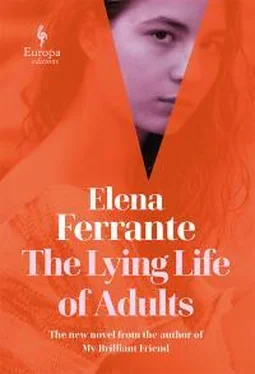
![Элена Ферранте - История о пропавшем ребенке [litres]](/books/32091/elena-ferrante-istoriya-o-propavshem-rebenke-litres-thumb.webp)
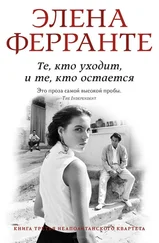
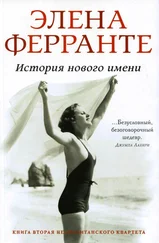
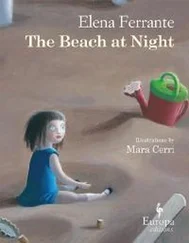
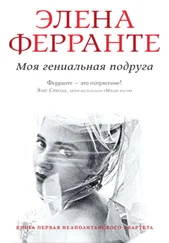
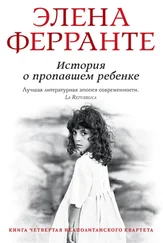
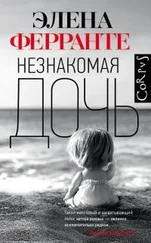
![Элена Ферранте - Дни одиночества [litres]](/books/404671/elena-ferrante-dni-odinochestva-litres-thumb.webp)

